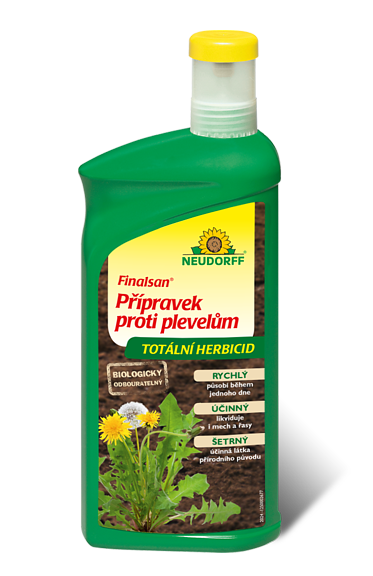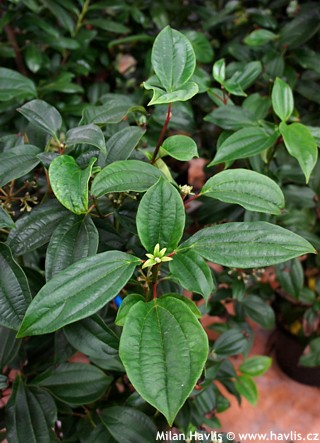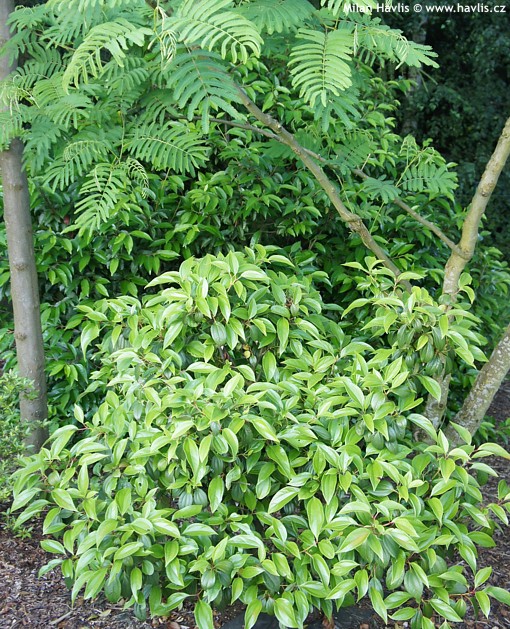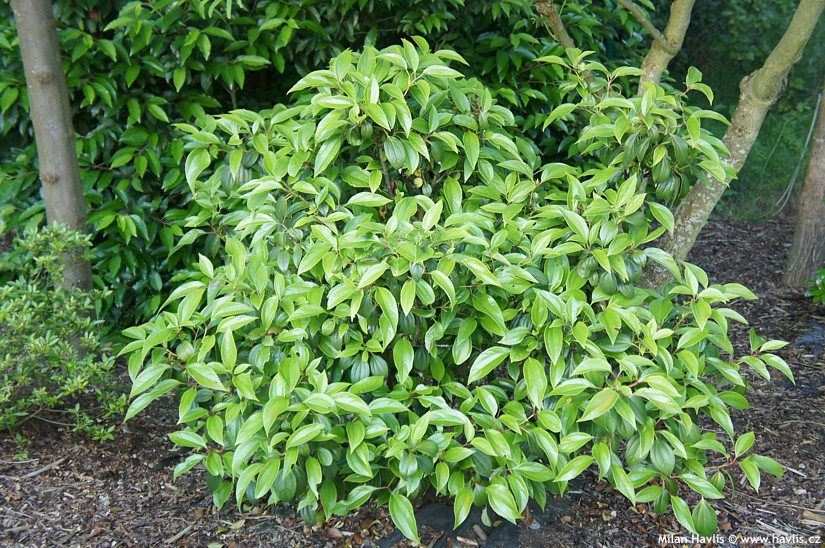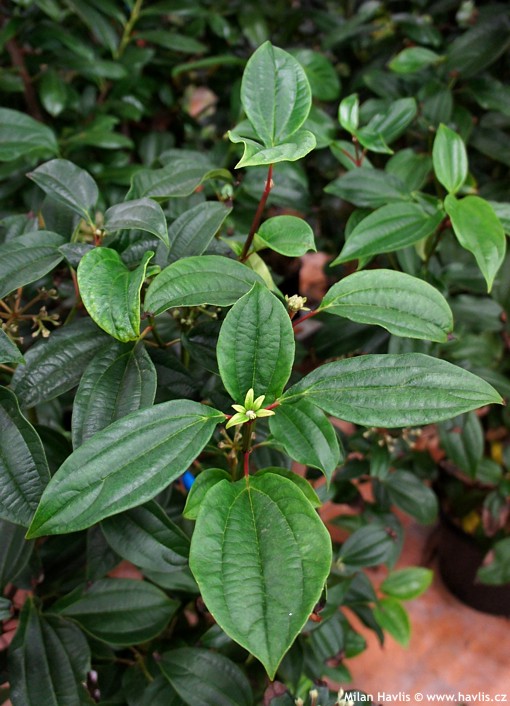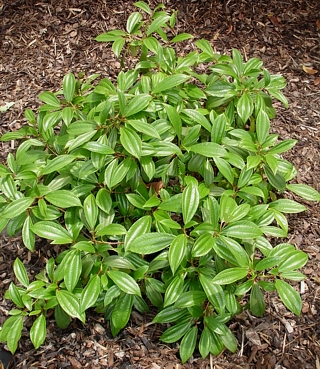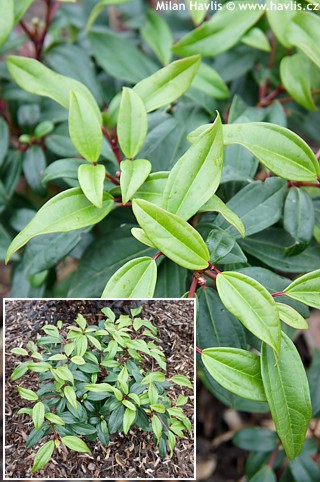Viburnum cinnamomifolium cinnamon-leaved viburnum
Cinnamon-leaved viburnum is a beautiful evergreen shrub that was discovered in China by Ernest H.Wilson in early 20th century and brought to the USA in 1905. It is very similar to David’s viburnum but larger in every aspect. It bears large, evergreen, broadly elliptic, deeply veined leaves that emerge soft green in mid spring and mature to dark green in summer. Their stalks, new twigs, and flower buds are carmine red from late summer onwards. If buds are not damaged by frost they open into loose, terminal cymes in early summer, and are followed by blue-black fruit. Still, they are not as beautiful as the foliage itself.
This viburnum forms a rounded, dense shrub that grows moderately or even slowly in Central-European conditions (zone 6) and 10-year-old plants can be about a meter tall and a bit wider, while in China it can allegedly reach almost 5m. In the Mediterranean and milder parts of Europe (Benelux countries and UK) it can grow to some 3m. Thanks to its prominent foliage it can be used in exotic-styled gardens, or can be combined with mid-sized conifers where the contrast between small needles and large leaves will be most conspicuous.
Evergreen viburnums need fresh, evenly moist but well-drained, acid soil. If you are unsure about its quality we recommend feeding the plant with a slow-release fertilizer such as Basacote or Osmocote once a year. Grow it in full sun or part shade. If you live in an area of deep and long lasting frosts find it a place sheltered from winter sunlight and strong winds. Hardy to about -23°C (USDA zone 6).
Last update 13-02-2012
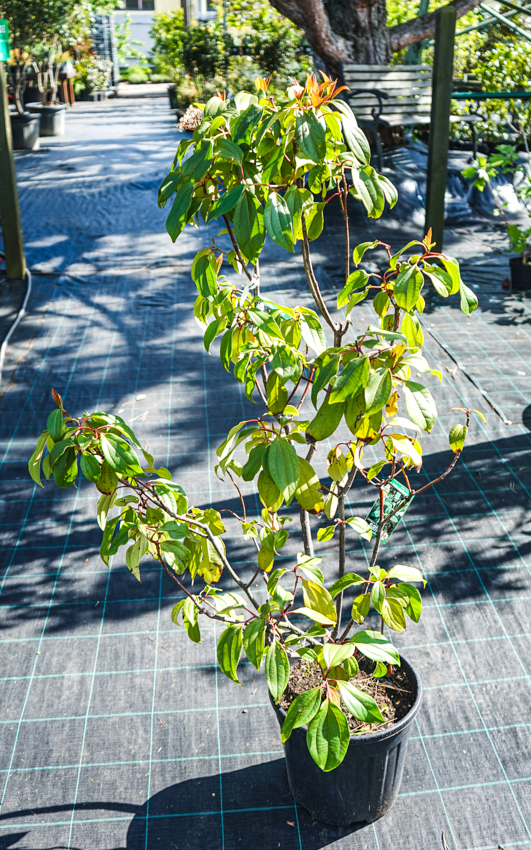
1 224 Kč
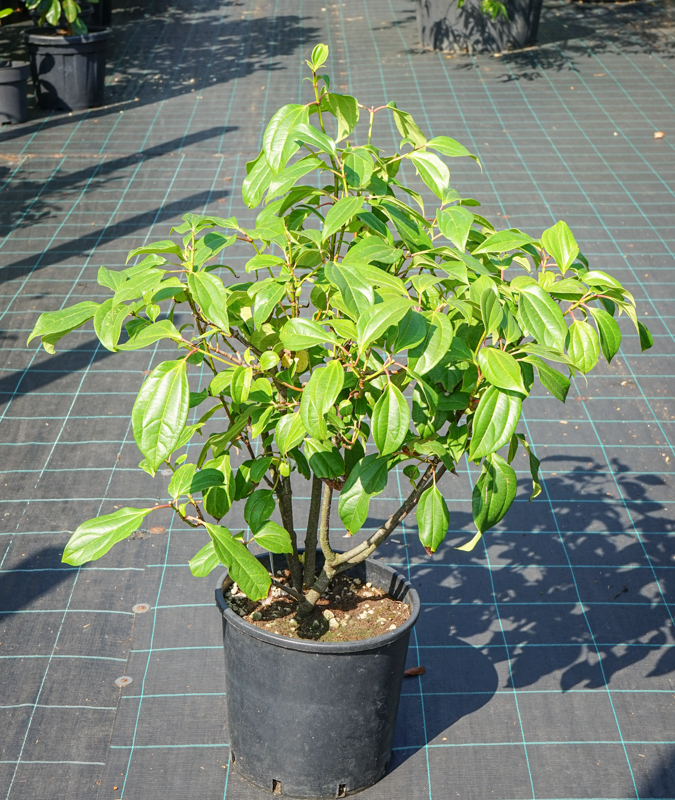
2 142 Kč
Goods are shipped all over Europe. For Russia and U.K. and for further details please read about SHIPPING OPTIONS HERE.
Are you interested in a serious discount for orders NOV-FEB? Check your options here.
THE PRICES INCLUDE VAT of 15%. For quick conversion you can use 1 CZK = approx. 0.04 EUR
- STANDARD QUALITY - Plants of this group are 1st class quality with number of branches and overall density adequate to their size and age, considering they were container grown.
- DE LUXE QUALITY - This label guarantees a luxurious quality of manually selected plants that, compared to their height and age, are exceptionally dense and beautiful.
- EXTRA - These plants are usually mature and bigger specimens with exceptional overall appearance.
- STANDARD (as described in the plant form) means a tree with a trunk of 190-210 cm and a crown at the top, unless specified differently. The commercial size for trees is their girth measured in the height of 1m from ground.
- HOBBY - These plants are of the same quality as our standard-quality plants but younger and therefore cheaper.
- SHRUB - a woody plant with branches growing bushy from the ground level.
- HALF-STANDARD or MINI-STANDARD - a small tree with shorter trunk, its size is usually specified.
- FEATHERED - These are trees with branches growing already from the base of the trunk and up along the stem.
- GRASSES and PERENNIALS - Sizes given usually read the diameter of the pot or the clump, as specified.






























